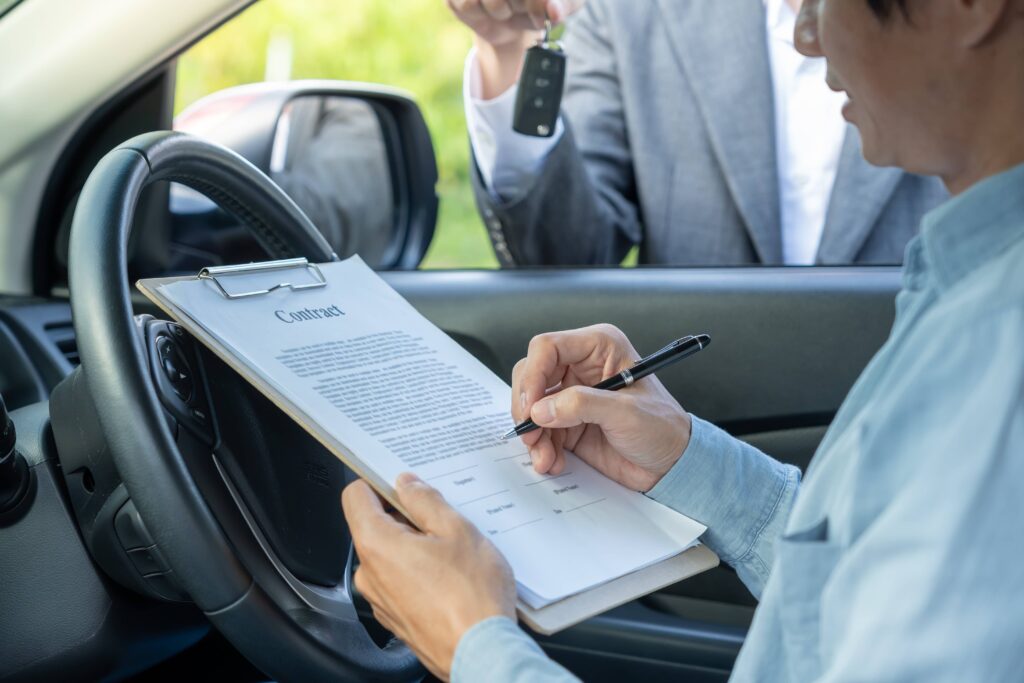Fast, Reliable, and Confidential
Understanding Nevada Bill of Sale Forms
When maneuvering the process of transferring ownership in Nevada, understanding the different types of Bill of Sale forms is important. Nevada offers specific forms like the Vehicle Bill of Sale (Form VP-104), which is critical when transferring a vehicle. This document, once signed by both the buyer and seller, becomes legally binding, offering protection for both parties.
The Nevada Bill of Sale for vehicles must include detailed descriptions, accurate identification, and financial terms to guarantee compliance with state laws. It’s essential to pair it with other required forms, such as the Odometer Disclosure Statement. Remember, the Bill of Sale isn’t just a formality; it’s a significant step in transferring ownership legally and smoothly, safeguarding your interests in the transaction.


Vehicle Transfer and Registration Process
When you’re transferring a vehicle in Nevada, start by completing a Bill of Sale and guarantee the title is properly filled and signed over. This often includes getting the title notarized to make the transfer legally binding. As the seller, you’re responsible for clearing any liens and notifying the DMV of the sale, whereas the buyer needs to secure insurance and register the vehicle within 30 days to avoid penalties. Remember to gather all necessary documents, like the Odometer Disclosure Statement for applicable vehicles, before heading to the DMV.
Required Documentation
Transferring ownership of a motor vehicle in Nevada requires several key documents to guarantee a smooth process. First, you’ll need a Vehicle Bill of Sale (Form VP-104) to legally validate the transfer of ownership. It’s important that the seller provides you with a properly filled and signed title. If the vehicle is less than 10 years old or weighs under 16,000 pounds, an Odometer Disclosure Statement is likewise necessary.
Once you’ve got these documents, register your vehicle with the DMV within 30 days. Bring the Bill of Sale, signed title, and proof of insurance for vehicle registration. If the title isn’t available, fill out a Duplicate Title Application (Form VP-012) to obtain a new one for registration.
Seller and Buyer Responsibilities
Having gathered the necessary documentation, it’s time to focus on the responsibilities of both the seller and the buyer in the vehicle transfer and registration process. As the seller, you must provide the buyer with a properly filled title and a completed Bill of Sale (Form VP-104) to guarantee a legal transfer of the vehicle in Nevada. Furthermore, notify the Nevada DMV of the sale through the Online Vehicle Resale Notification within five days. On the buyer’s end, you must obtain insurance and a movement permit immediately after the purchase. Present the signed title at the DMV to receive the movement permit, then register the vehicle within 30 days, providing the bill of sale forms, title, and proof of insurance. Accuracy in documentation is essential for both parties.

The Importance of a Bill of Sale
You can’t underestimate the importance of having a Bill of Sale as it provides essential legal protection for both the buyer and seller. By clearly documenting the transaction details, it helps prevent disputes and guarantees everyone understands the terms. Plus, it serves as a vital record-keeping tool, safeguarding your interests and verifying the item’s history and condition.
Legal Protection Assurance
Although often overlooked, a Bill of Sale is essential for ensuring legal protection during any transaction. When you’re buying or selling personal property, this document provides a clear record of ownership transfer, offering legal protection for both parties. It includes critical details like the purchase price, item description, and any liens, ensuring everyone understands the transaction terms.
Transaction Recordkeeping Essentials
A Bill of Sale plays an essential role in transaction recordkeeping by serving as a definitive proof of ownership transfer. It provides information about the sale, including item description and purchase price, ensuring both parties are clear on the details. This document is vital in preventing disputes, as it acts as a permanent record protecting both buyer and seller.
Here are four key reasons why a Bill of Sale is important:
- Legal Protection: Safeguards against disputes by clearly outlining the sale terms.
- Liability Limitation: Shields the seller from liabilities related to the item post-sale.
- Financial Clarity: Details any existing loans or liens, preventing future complications for the new owner.
- Identification: Includes legal names, addresses, and identification numbers of all parties involved.
Seller Responsibilities in a Transaction
When selling a vehicle, it’s essential to fulfill specific responsibilities to guarantee a smooth transaction. First, the seller must provide a properly filled title to the buyer, ensuring it’s signed and free of liens. Completing a Bill of Sale (Form VP-104) is vital for documenting the vehicle’s details and retaining a record of the sale. Notify the Nevada DMV of the sale within five days using the Online Vehicle Resale Notification system. Remember, license plates must be kept and not transferred to the buyer; you can either surrender them to the DMV office or keep them for future use. If the vehicle is registered to a family trust, complete a Trustee Appointment and Powers Affidavit (Form VP 188) to authorize the sale.
Buyer Obligations for a Successful Transfer
Before you can legally claim ownership of a newly purchased vehicle, you’ll need to guarantee a few key obligations are met. Here’s what you need to do:
- Receive a Properly Filled-Out Title: You must obtain a completed title from the seller, ensuring all required information is accurate to enable the transfer of ownership.
- Conduct a Background Check: Perform a background check on the vehicle through the NICB VIN Check to verify its history and status.
- Secure Insurance and Movement Permit: Immediately obtain insurance coverage and a movement permit to legally operate the vehicle.
- Register the Vehicle: The vehicle must be registered within 30 days at the DMV. Present the completed title and necessary documents, including the Bill of Sale, to complete this process.

Crafting a Comprehensive Bill of Sale
Although transferring ownership of a vehicle can seem challenging, crafting a detailed Bill of Sale simplifies the process by outlining every essential aspect of the transaction. You must include thorough item descriptions, especially for a motor vehicle, integrating unique identifiers like the Vehicle Identification Number (VIN). Clearly state the purchase price in both numerical and written form, alongside the transaction date, to avoid disputes. Don’t forget to list both parties’ full legal names, addresses, and identification numbers to validate the agreement and guarantee accountability. Any existing loans or liens must be disclosed, outlining the lender and terms. For added legal protection, consider additional clauses and make sure both parties sign the document, with notarization for motor vehicles if required.
What our customers say

need more information?
Frequently Ask Questions.
Got questions? We’ve got answers. Whether you’re curious about mobile notary services, pricing, or what documents we can notarize, you’ll find quick, helpful info below.

Our mobile notary service brings a professional notary to your location at a time that’s convenient for you. Simply schedule an appointment, and we’ll handle the rest—whether you’re at home, the office, or another location.
Yes, a valid, government-issued photo ID is required for all notarizations. This includes driver’s licenses, passports, or other forms of identification accepted by state regulations.
Absolutely! We offer flexible scheduling, including evenings and weekends, to accommodate your needs. Our goal is to provide convenient and reliable notary services whenever you need them.
Notarizations:
For taking an acknowledgment , for the first signature of each signer: $15
Each signer first signature: $15
For each additional signature of each signer: $7.50
Administering an oath or affirmation: $7.50
Executing a Jurat for each signature on the affidavit: $15
Travel Fee: 6 a.m. - 7 p.m. : $30
7 p.m. - 6 a.m. :$60


